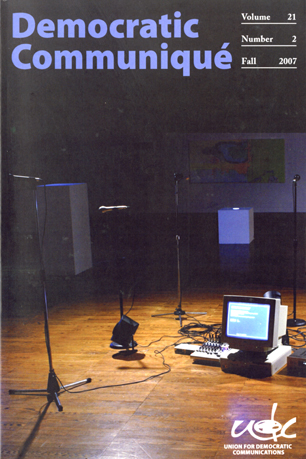The Political Economy of U.S. Broadcast Ownership Regulation and Free Speech after the Telecommunications Act of 1996
Abstract
In a recent series of us court cases involving media ownership regulation, broadcasters have invoked the First Amendment to the US. Constitution to resist ownership limitations, while civil society organizations and critics of media consolidation have raised free speech rights as a rationale to promote the idea of ownership restrictions. This study reviews First Amendment jurisprudence on broadcast ownership regulation since the passage of the Telecommunications Act of 1996 (TCA) and explores the potential for a fundamental shift in how the US federal courts allocate speech rights in broadcasting. While the courts have remained consistent with pre- TCA landmark cases that recognized public interest concerns over broadcasters' individual speech rights, dissenting justices have empathized with broadcasters' argument that reducing ownership regulations is in the public interest. Informed by political economy, 1 argue that this nascent perspective should be rejected in accordance with a collectivist interpretation of the First Amendment.


